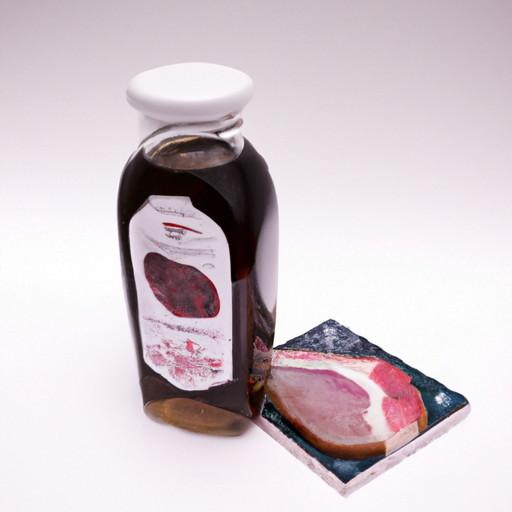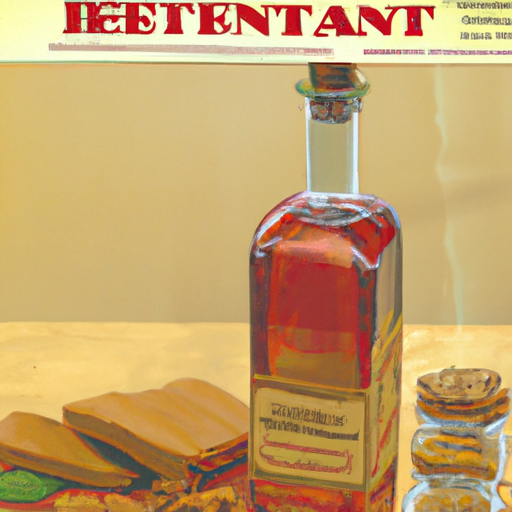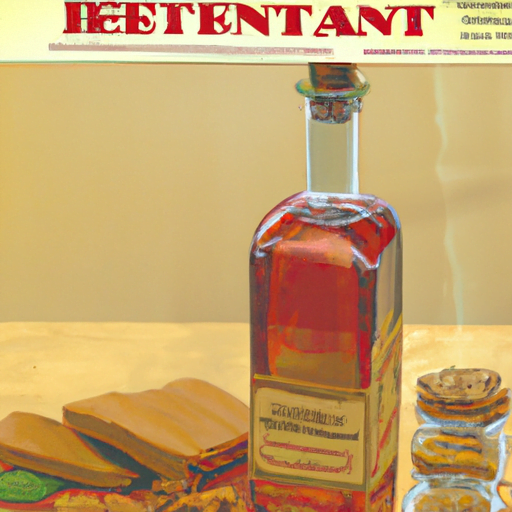So, have you ever wondered if vinegar can be used to preserve meat? You know, like in those survival shows where they have to find creative ways to make their food last? Well, it turns out that vinegar actually does have some preservation power, but the question is, does it extend to meat? Let’s dive into the details and find out.
When it comes to preserving food, vinegar has been used for centuries. Its acidic nature helps to kill bacteria and prevent spoilage. But when it comes to meat, the situation is a bit more complicated. While vinegar can help kill some of the bacteria on the surface of the meat, it doesn’t penetrate deep enough to fully preserve it. So, if you were thinking about using vinegar as a meat preservative, it might not be the best option.
However, that doesn’t mean that vinegar is completely useless when it comes to meat preservation. It can still be used as a marinade to help tenderize and flavor the meat. Plus, vinegar can be used as an ingredient in homemade sauces, which can help to extend the shelf life of the meat when stored properly. So, while vinegar may not have the same preserving power as other methods, it can still play a role in helping your meat last a bit longer.
In conclusion, while vinegar does have some preservation power, it may not be the best option when it comes to preserving meat. Its acidic nature can help kill bacteria on the surface, but it doesn’t penetrate deep enough to fully preserve the meat. However, vinegar can still be used as a marinade and as an ingredient in sauces to help extend the shelf life of meat. So, the next time you’re in the kitchen, feel free to reach for the vinegar, but maybe consider other preservation methods for your meat.

The Preservation Power of Vinegar: Does it Extend to Meat?
Introduction to Vinegar as a Preservative
Vinegar has long been recognized for its preserving abilities, with many people utilizing its power to extend the shelf life of various foods. From pickles to salad dressings, vinegar has been a staple in traditional food preservation techniques. But does its preservation power extend to meat? In this article, we will delve into the chemistry behind vinegar’s preservative properties and explore its potential as a meat preserver.
The Chemistry Behind Vinegar’s Preservative Properties
Vinegar, most commonly made from fermented ethanol, possesses an acid content that gives it its preservative properties. The main component responsible for this preservation ability is acetic acid, which is produced during the fermentation process. Acetic acid inhibits the growth of bacteria, fungi, and other microbes, making it effective in preventing spoilage.
Exploring the Use of Vinegar in Food Preservation
Food preservation techniques involving vinegar date back centuries and have been used in various cultures around the world. In pickling, for instance, vinegar is utilized to create an acidic environment that prevents the growth of harmful bacteria. This same principle has been applied to other foods, such as vegetables, fruits, and even fish. However, the preservation of meat using vinegar has remained a subject of debate and speculation.
Historical Significance of Vinegar in Food Preservation
Throughout history, vinegar has played a crucial role in preserving various types of food. In ancient times, civilizations such as the Romans and Chinese utilized vinegar to pickle vegetables and preserve fruits. The acidic properties of vinegar prevented the growth of microorganisms, allowing food to be stored for longer periods. This historical significance exemplifies the potential of vinegar as a preservative agent, raising questions about its effectiveness in preserving meat.
Understanding the Science of Meat Preservation
Meat preservation can be a challenging task, as it is highly susceptible to spoilage due to its high protein content and water activity. The growth of bacteria, such as Salmonella and E. coli, can pose serious health risks if meat is not stored properly. Various preservation techniques exist, including drying, smoking, and refrigeration, but the potential for using vinegar as a meat preservative remains an intriguing prospect.
Potential Benefits and Drawbacks of Using Vinegar to Preserve Meat
If vinegar can effectively preserve meat, it could offer several advantages. One significant benefit is its natural origin, making it a desirable option for those seeking alternative and chemical-free preservation methods. Additionally, vinegar is readily available and affordable, offering a cost-effective means of preservation. However, there are potential drawbacks to consider. The flavor profile of vinegar can be overpowering, altering the taste of meat. Moreover, vinegar may not be as effective in preventing spoilage for all types of meat, which raises questions about its universality as a meat preserver.
Methods of Using Vinegar for Meat Preservation
There are various methods for utilizing vinegar in meat preservation. One common approach is to marinate meat in a mixture of vinegar, salt, and spices before cooking or drying. The acidic environment created by the vinegar helps inhibit bacterial growth, prolonging the meat’s shelf life. Another method involves using vinegar-soaked cloths to wrap meat, creating an acidic barrier that prevents spoilage. These methods require experimentation to determine the optimal vinegar-to-meat ratio and duration of preservation.
Effectiveness of Vinegar in Preserving Different Types of Meat
The effectiveness of vinegar in preserving meat may vary depending on the specific type and cut of meat. Case studies and anecdotal evidence suggest that vinegar is more successful in preserving poultry, such as chicken and turkey, compared to red meats like beef or lamb. The high acidity of vinegar may be more effective in inhibiting bacterial growth in poultry, making it a viable option for preservation. However, further research is needed to attain conclusive evidence regarding the effectiveness of vinegar in preserving different types of meat.
Common Misconceptions and Myths about Vinegar’s Meat-Preserving Abilities
There are several common misconceptions and myths surrounding vinegar’s meat-preserving abilities. One such belief is that vinegar can “cook” or “cure” meat, rendering it safe for consumption without further cooking. It is essential to note that vinegar cannot fully eliminate bacteria and parasites that may be present in raw meat. Therefore, it is crucial to cook meat properly to ensure its safety, regardless of the use of vinegar as a preservative.
Conclusion
While vinegar has been widely used for centuries to preserve various types of food, its effectiveness in preserving meat remains an area of ongoing research and debate. The acidity of vinegar provides it with preservative properties, but its success in meat preservation may vary depending on the type of meat and the specific preservation method employed. Although vinegar offers potential benefits as a natural and cost-effective preservation option, it is essential to exercise caution and utilize other preservation techniques in conjunction with vinegar to guarantee the safety of meat consumption. As research in this field continues, we may gain further insight into the preservation power of vinegar and its potential role in meat preservation.





